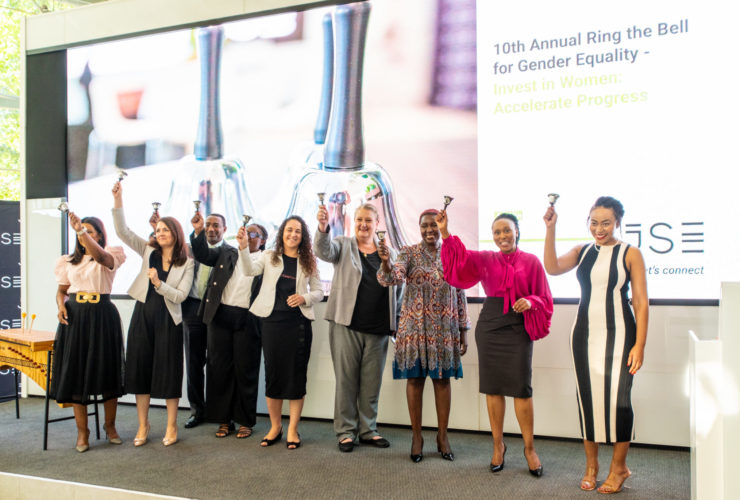The 16 Days of Activism against Gender-Based Violence is an annual, international campaign. It is a global organising strategy used by individuals and organizations to call for the prevention and elimination of all gender-based violence against women and girls. The 25th of November was the International Day for the Elimination of Violence against Women. This day marked the beginning of the campaign which ends on the 10th of December, on Human Rights Day.
Ahead of the 16 Days of Activism, President Cyril Ramaphosa convened the 2nd Presidential Summit on Gender-Based Violence and Femicide (GBVF). The Summit which took place on 1-2 November aimed to track the progress of the implementation of the National Strategic Plan on Gender-Based Violence and Femicide since its launch in 2020. One of the key insights from the summit was the need for the private sector to scale up its efforts and join government and civil society in combating GBVF.
Despite the multisectoral responses to GBVF, these have not been adequate to create meaningful change, as GBVF continues to be on the rise in South Africa. There remains the need for more robust responses that acknowledge and centre women’s rights as human rights.
As the Global Compact Network South Africa, we urge and challenge the private sector to scale up and amplify its efforts on eradicating GBVF. Given that the Private Sector is a key employer and has a significant footprint into homes and communities through its products and services, it can use this as an opportunity to instil inclusive practices and influence behaviour.
Secondly, the workplace is often a microcosm of the broader society, hence it’s critical that companies have zero-tolerance policies and clear strategies that guide and encourage inclusive practices and take a firm stand against gender inequalities and GBV in the workplace.
In addition, the National Strategic Plan on Gender-Based Violence and Femicide offers very comprehensive guidance on various implementation measures. For example, a company may implement the following in alignment with the Pillars of this plan:
- Pillar 1: Accountability, Coordination, and Leadership: Show bold, firm leadership and commitment to GBV through clear policies (including reporting and grievance mechanisms) strategies, trainings, systems, and deliberate actions.
- Pillar 2: Prevention and Rebuilding Social Cohesion:
- Identify potential risks and mitigation measures for GBV in the workplace
- Collectively join forces in outreach and amplifying awareness campaigns on women’s rights and the eradication of GBVF.
- Provide funding and resources to civil society organisations/bodies to increase GVBF prevention efforts.
- Pillar 5: Economic Power: Amplify initiatives that address women’s unequal economic and social positions. For instance, by taking the following deliberate actions
- Promoting women in senior leadership positions.
- Working against existing barriers to ensure that enterprises owned by women have equal access to the company’s procurement spend.
The Global Compact Network South Africa will continue to support participating companies to move toward gender equality by being aware of how inequalities are perpetuated at the workplace and setting appropriate mechanisms and benchmarks towards best practice.
For more information on Global Compact Programmes (including gender equality) in South Africa, please email:
Rethabile Mbokodi
Email: rethabilem@globalcompactsa.org.za






